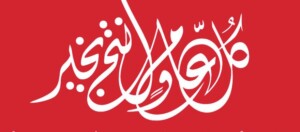Resistance committees born of revolution raise awareness among Sudan’s youth
The resistance committees in Wadi El Akhdar and El Hilal east of the Nile north of the Sudanese capital, is one of the committees which engaged in programmes of awareness and education through a project called Revolution Awareness.
 An outdoor screening by Cinema Revolution,to raise awareness of human and legal rights (RD Correspondent)
An outdoor screening by Cinema Revolution,to raise awareness of human and legal rights (RD Correspondent)
The resistance committees in Wadi El Akhdar and El Hilal east of the Nile north of the Sudanese capital, is one of the committees which engaged in programmes of awareness and education through a project called Revolution Awareness.
The district resistance committees played a pivotal role in the overthrow of the Bashir regime. Since then, they have taken up community awareness and education, as well as the role of popular control over the transitional authority and following up the implementation of the demands of the revolution through rallies and protests.
Most of the resistance committees were established in different districts and cities in conjunction with the December Revolution.
The membership of the resistance committees is dominated by the youth element that have been playing a major role in the success of the rallies and protests called for by the Sudanese Professionals Association and the Forces for Freedom and Change over the past months.
This made them subject to systematic targeting by the security mechanism that killed and arrested a number of their leaders and members. Since the fall of the Al Bashir regime, the resistance committees have been active in raising awareness, training, environmental sanitation campaigns, rehabilitation of schools and hospitals, setting up their environment, drawing murals on schools, setting up memorials, as well as popular supervision of the transitional authority through rallies and guarding the goals and demands of the revolution.
Revolution Cinema
Abbas Mahjoub, secretary of the resistance committees in Wadi El Akhdar and El Hilal said in an interview with Radio Dabanga, in a programme designed to reflect the initiatives of the resistance committees and districts in various levels, that the awareness project aims to promote the concepts of youth at various levels and includes a number of programmes such as Revolution Cinema.
According to Abbas, the programme Revolution Cinema, which is organised by the committees in order to raise awareness of human and legal rights as well as to maintain the flame of the revolution burning, presents video clips of the December Revolution, the sit-in of the General Command and the violations that occurred by the authorities on June 3 also known as the 29 Ramadan massacre, that claimed the lives of more than 100 people.
Abbas pointed out that the Revolution Cinema programme, which is projected onto a wall in the open air next to one of the schools of the districts, has received an unprecedented turnout, especially from the youth segment.
Sudan’s cinema sector has been subject to systematic destruction during the former regime on the basis of religious fatwas prohibiting cinematic shows, where the regime demolished a large number of cinemas or converted the buildings to other purposes and sold them to investors.
Cinema Revolution features a number of international films documenting revolutions throughout the world as well as films that reinforce the concepts of rights awareness.
Abbas pointed out that the limited production of Sudanese cinema is one of the obstacles facing Revolution Cinema.
He added that a lack of understanding by the police of the revolutionary cinemas remains the main obstacle, pointing out that police raided the first cinema and detained one of the members of the resistance committees for more than a day.
Radio Dabanga’s editorial independence means that we can continue to provide factual updates about political developments to Sudanese and international actors, educate people about how to avoid outbreaks of infectious diseases, and provide a window to the world for those in all corners of Sudan. Support Radio Dabanga for as little as €2.50, the equivalent of a cup of coffee.












 and then
and then